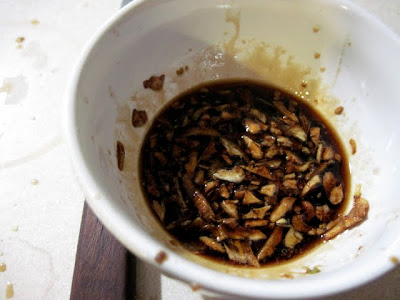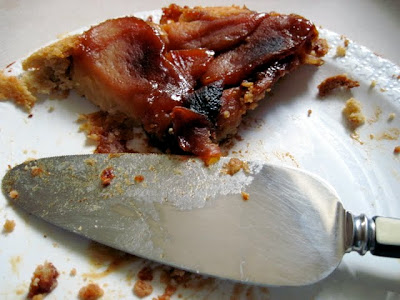Booths, whether they are in a market or in an event, whether selling food, trinkets, or political causes, have always frightened me. I think this has to do with how supermarkets taught me to approach transactions. In a supermarket, the closest one comes to interacting with the seller is in the checkout line, and there the cashier hardly cares what one buys. I have a feeling of relative freedom in a supermarket because nobody is watching me, or at least only a very general someone. I am just one among many customers in the store at any given moment, and no employee is really in charge of the place; they just work there. In a small shop, on the other hand, I find myself running toward some secluded corner first, to collect myself before, if i have to, making the foray to where I can be seen. There is nothing keeping the employee or proprietor of a small shop from being interested in whatever I’m doing, even though, in all likelihood, they are not interested. Booths are the worst: everything I do can be seen, and we might even chat about it.
When I see booths I think of the two open markets that happen weekly in Ashland’s warmer months. Markets of this sort in the U.S. today are part of a more general trend of rejecting bits of postwar capitalism in favor of The Way Things Used to Be, or taking the Old World to the New. The boons of the 1950s have become the horrors of the new millennium: processed foods are bad, supermarkets distance us from our neighbors, agricultural technologies are poisonous. The list goes on, and each horror has given rise to a burgeoning alternative. Although some of them are more
nostalgic museum pieces than anything else, these are all good things, I think. But even if the rigors of economics accept them, I’m not sure I entirely can. The mores of the supermarket have been encoded into my being.
So when I discovered that the chocolate tasting part of the Chocolate Festival consisted in visiting a bunch of chocolate vendor’s booths, I was scared. What was I to say? How was this interaction supposed to happen? How could I approach the booth without its occupants noticing? Would they be annoyed that I obviously wanted to eat their samples and nothing more?
I clung to the water spigot, downing draughts of ice water as if it were booze and I were drinking courage. Then I began walking around and around trying to work up the nerve to approach a booth. I was grateful for the vendors who, without preamble, thrust chocolatey things into my hands. Sometimes there were conversational spielers who asked me questions, brave souls. Not trusting my capacity to keep up my end of the talk, I would flee from these when first possible.
One time my flight led me up the hotel’s stairs, trying to distance myself from the festival, only to reencounter it. There was some sort of barely polite spat between a chocolatier, or maybe a chocolate company representative, saying that the Chocolate Festival screwed up the description of his company. Or something. Or it was put in the wrong category. Or he entered it into the wrong category, and thus lost the contest. Part of the Chocolate Festival is a judged chocolate contest. It’s a big hullaballoo, I imagine. He called the mistake “very embarrassing for me.” They argued for ten minutes, saying the same things over and over, while I sat on the stairs a floor above them. Nothing could be done, there was nothing he seemed to want or could want other than to let them know that they will never be forgiven. And the staff he was bitching at, in turn, could only apologize for their alleged error, and self-justify.
But down the stairs among the booths, any dissonance between chocolatiers and festival is invisible. In the end it is largely self-destructive to try to signal one’s dissatisfaction with the means of enunciation one is given. Although occasionally it can be quite lucrative.
Somehow, despite my skittishness, I managed to make my way to each booth. Well, I was guided through the gauntlet by a Chocolate Festival veteran. She said she has “plenty of taste but no standards.” This also describes my relationship with chocolate rather well. I am by no means a connoisseur, but some things I sampled at the festival, for whatever reason, I reacted viscerally to. Everything there tasted like chocolate--well, okay, the raw chocolate didn’t quite--but some things surprised me. Some of the most memorable bites follow.
There were the delightfully gooey, dark truffles from
Branson’s Chocolates. I completely agree with their purveyor who said that’s how she likes ‘em, disdaining the stiff variety of truffles.
There was
Lillie Belle Farms’gorgonzola chocolate spread. Contrary to their cute purple logo, they revel in trendy chocolate juxtapositions. There was chocolate with bacon, chocolate with tons of hot chili, and chocolate with local gorgonzola cheese. This last was like milk chocolate, but sharp with mold and saltiness.
Then we move on to the weird and the nonchocolate. Linda Shumate of
PremRose Edibles was quite insistent on having everyone try her rose preserves. “It’s like eating rose water,” I said, which she seemed to find somewhat insulting. ”Which one?” I think she thought I was humoring her and that I hated the stuff, but actually I love it. It is a piece of high confectionary (or in the parlance of this blog, “
pastry”) to simmer down enough rose petals to create a heavily perfumed preserve. Or whatever is done with the rose petals. I’m ignorant as to how it’s made. I imagine the arcane, perverse chemistry of
“Perfume”.
Finally there was
Zorba’s raw chocolate green tea ginger truffle, which is as much a mouthful in taste as its name. It was more than visceral. It eviscerated. Its green powdery coating puckered my mouth with intense bitterness. It tasted not of confectionary but of medicine, and made me feel like I had been given an inebriating dose of healthfulness. I felt dizzy. It was spectacularly awful.
There were a lot of raw chocolatiers at the festival. Jen Moore at the
Jem Chocolates booth was chatty. “Have you ever experienced raw chocolate before?” she asked as I chewed on my sample. Of course. I should have guessed that one doesn’t have, taste, or try raw chocolate, one
experiences it. She went on to tell me that raw chocolate is rich in nutrients. I blinked. Silly me, eating chocolate for pleasure. Roasting chocolate brings out the tannins she said, and hides the nuttiness of raw chocolate. She was one I eventually fled from. It turned out later that my ambivalence was as visible as I had feared. The second time I found myself there she said I (unwittingly) gave “good feedback.”
But I think, unlike booths, I dislike raw chocolate on principle. Every raw chocolatier seems to deal in the discourse of Truth. Processing and cooking chocolate corrupts its true healthful nature and noble flavor, turning it sour with tannins. I do find raw chocolate’s flavor refreshing in contrast to conventional chocolate’s intensity, but raw chocolatiers seem eager to take the word ‘raw’ literally and convince us that it’s better because it’s
more real. Maybe I don’t understand because I just haven’t put enough effort into overcoming my entrenchment in industrial comforts. Maybe if I
wrapped my head in hand-spun cloth, dressed entirely in Indian imports, renamed myself, and converted to Sikhism (in that order and not the reverse), I too would feel raw chocolate’s goodness.




































